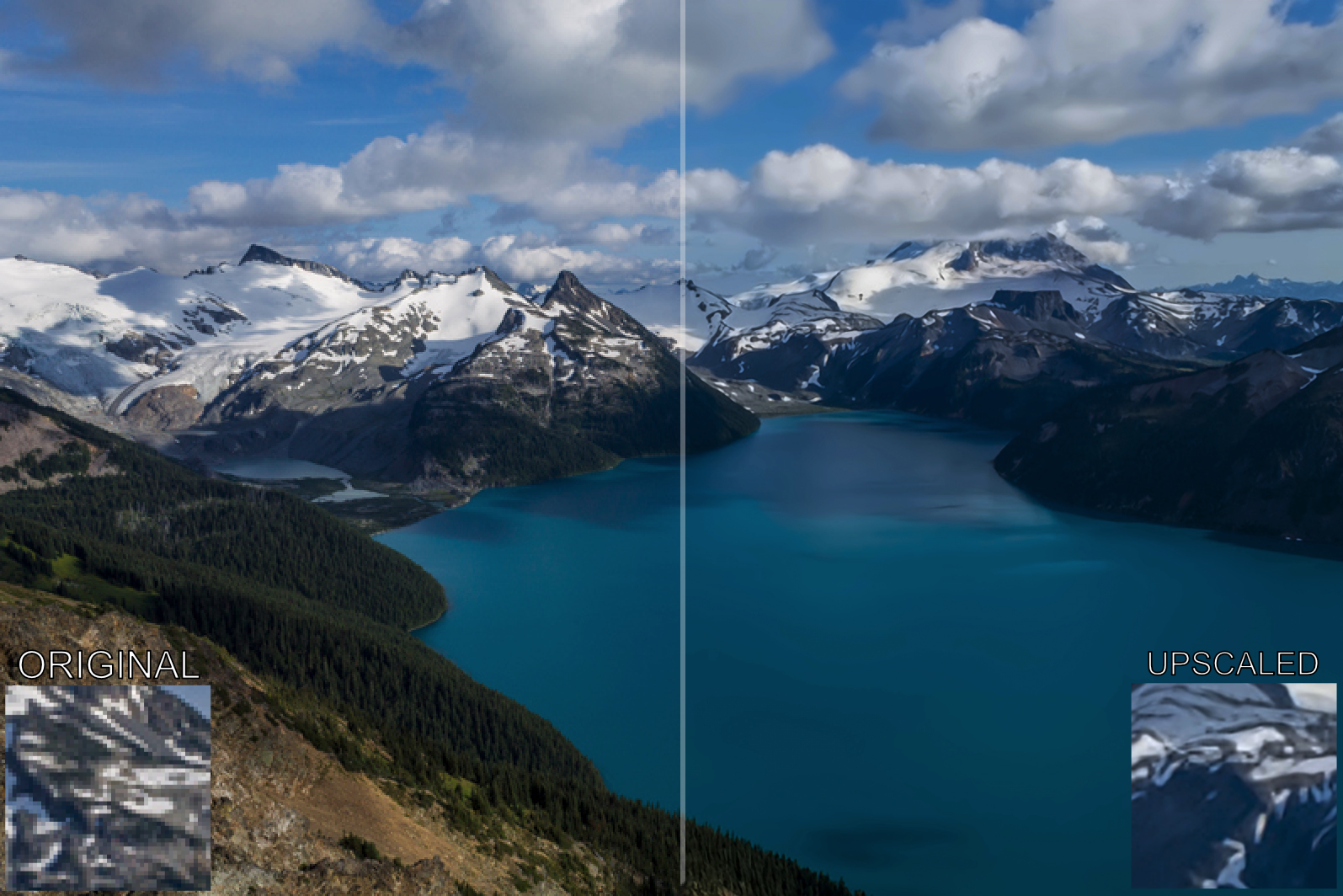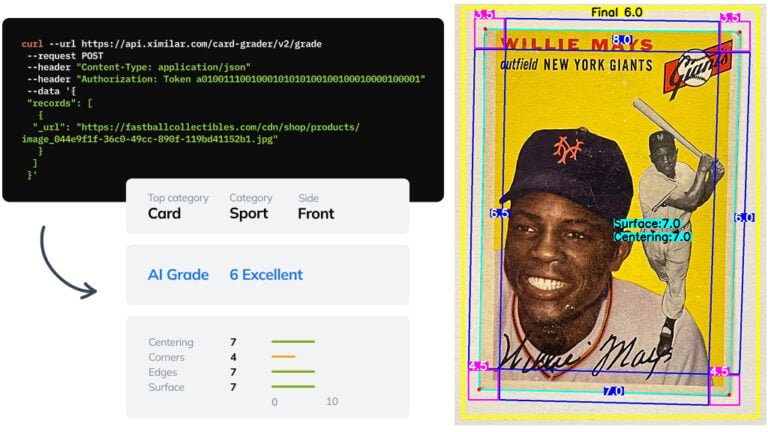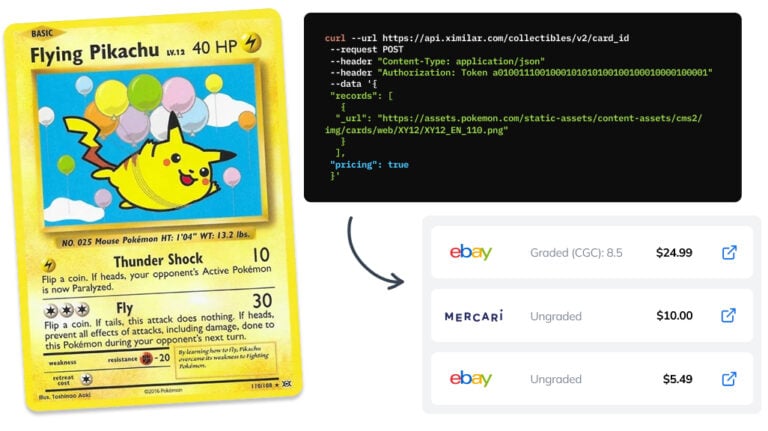Image Upscaler: API for Super-Resolution Image Enhancing
Enhance your images’ resolution without losing quality with a powerful Image Upscaler based on visual AI.


Websites based on visual content from various sources often struggle with the low resolution of their images. Ximilar created Image Upscaler – a new image upscaling tool, based on a smart enhancing algorithm, which is able to upscale the image up to 8x. It is one of the most affordable solutions on the market, which can be both integrated into image processing systems and used separately.
When Visual Content Matters
About 90 % of information transmitted to the human brain is visual. There is no doubt that humans are fixated on visual information, with images and videos being the most popular content on the internet. According to Internet Live Stats, every second, more than 1 000 pictures are uploaded to Instagram and almost 100k videos are played on YouTube.
To increase the traffic & conversions, you need to make your site and content as visually appealing as possible.
The more people love using and consuming visual content online, the more important visual merchandising gets. It is clear that if you want to increase the traffic and conversions on your website, you need to make your site and content as visually appealing as possible.
How Does Image Upscaling Work?
Image upscaling, or image enhancement, is a process in which images are enriched with more pixels to get a higher resolution. During this process, the image is divided into segments which are upscaled separately and then put back together. So, for example, during the 4x upscaling, the 64 x 64px segments turn into 256 x 256px.
The pixel multiplication is enabled by AI, using the techniques of deep learning and computer vision. During the training, the neural network learns how to divide each pixel into multiple pixels based on its surroundings. Some image enhancing techniques also involve generative modelling, which generates new information to make the modified image look convincing.
A Few Image Upscaling Examples

Super-resolution upscaling makes the edges and colour transitions smoother. When you find a perfect stock photo, you can increase the resolution by adding 2x, 4x, or 8x more pixels to the image.

Sometimes, the smallest changes to the image make the biggest difference. The upscaled images provide the feeling of greater depth and more details, and leave a better impression.

Where is The Image Enhancement the Most Needed?
Stock Photo Databases
The competition in the stock image market is enormous. Nowadays, users of paid stock photo databases expect combined visual search & search by tags, advanced filtering, high-quality photos, or even an editing interface.
When you implement an upscaling solution, you can level up your customer experience, ensure that images coming from thousands of authors will maintain a certain quality, or even make it a part of your own image editor.

Real Estate Photos
Real estate properties with great image galleries have a significantly greater chance of catching the attention of visitors and finding buyers faster.
If you have a collection of real estate images, you can use Custom Image Recognition to automatically choose the best pictures to be displayed, and then use the Image Upscaler to increase the resolution of images. To do so, you will need to train your categorization task first and then combine it with Image Upscaler via Flows.

E-Commerce
Online sellers usually receive their product pictures from various sources. That is why upscaler is a useful visual merchandising and product page optimization tool. You can add the image enhancement into your automatic image processing system to get a unified resolution for the product listing as well as the highest quality images for the product page.
This can also be done with Flows: you can create a task, which will choose all low-quality images and send them to an upscaling task. You can also combine this service with background removal or add it into a more complex Flow with tagging tasks.
Want to know more? Read how our AI helps online businesses.
Gaming
Upscaling technology is getting used in more and more industries, but the first super-resolution AI models were used in the gaming industry. For example, Xbox or your latest Nvidia GPU card can artificially increase the resolution of the game. Using image enhancement in games has several advantages:
- The rendering mechanism is used for creating low-resolution scenes and then a fast AI model is used to improve the resolution
- Older games, that are natively optimized for lower resolution, can be eventually played with improved graphics in a higher resolution
Generated Art
Generated images, artworks, and concept art are becoming increasingly popular with technologies such as Dall-E 2 and Midjourney. We tried our Generative (GAN) model on these photos and the results are amazing! You can get beautiful printable art in 4k or 8k resolution with our AI via API. What a time to be alive!
The Technology Behind Image Upscaler
Ximilar currently provides two image upscaling solutions: the Classic Image Upscaler and GAN Upscaler.
Classic Image Upscaler
The Classic Image Upscaler is based solely on pixel multiplication. It multiplies each pixel in an image 2–8 times to achieve a higher resolution without modifications to the image. The image upscaled by a classic upscaler is as true to the original image as possible. It is ideal if you only need to upscale your images without adding anything new. Typical examples are CCTV footage or images with delicate patterns and details, that should remain unchanged.
Ximilar is using the latest architecture of convolutional neural networks trained on high and low-quality images. The model outperforms the bicubic interpolation used in programs like Photoshop by several times.
Post-Processing Methods
The post-processing API can be used to remove unnecessary artifacts and noise from images (Artifact removal), focus on small details (High fidelity), or significantly smooth the entire image (Ironed out).

Each of these post-processing methods is good for different types of images. For example, smoothing is ideal for vector graphics or designs. Artifact removal is best for real-life images, e.g. family photos. High fidelity can be used in professional graphics.
GAN Image Upscaler
GAN Image Upscaler is a bit more advanced, and in fact, recommended upscaling technology, especially for commercial content. This upscaler analyzes the colors, edges, corners, light and shade in the original image and enhances its resolution by generating new pixels, that are as relevant pixels as possible to make the resulting images natural-looking. It makes stock photos and product images look more appealing.
How to Upscale an Image Using the Image Upscaler?
A lot of smartphone apps use upscaling models to improve user photos. Brands such as iPhone or Huawei include enhancing models in their software. These models are hidden from the eyes of the user and participate in making photos. Our super-resolution model can be used anywhere simply by calling the Rest API.
Synchronous and Asynchronous API Requests
A basic upscaling task uses synchronous request, meaning you upload an image, wait for it to be processed and eventually get the upscaled result. Synchronous API requests are typically used in public upscaling tools and are currently set for testing purposes in our App. They can however be ineffective for companies that upscale large volumes of data at once and want to keep track of the progress.
That is why we also provide and recommend an API endpoint for asynchronous requests. The difference is that you send multiple upscaling requests (specified by id), they are queued and then processed one by one. You can also send other requests to track the progress of the job. We especially recommend this approach if you need to upscale whole databases, e.g. e-shops with large product photo collections or stock photo databases. You can also use Webhook and get a notification once the job is done.
The model is accessible via the following async API endpoints:
https://api.ximilar.com/account/v2/request
You can also test upscaling of images in Ximilar App (with the option to use the latest GAN model).
Image Upscaler at Stockphotos.com
The Image Upscaler by Ximilar is used at one of the best-known stock photo banks, StockPhotos. The service is free of charge for testing purposes.
Would you like to implement an AI image upscaler into your own app or system? Feel free to contact us anytime.
Tags & Themes
Related Articles

Ximilar Now Combines Visual and Text-to-Image Search
E-commerce retailers using our search engine now have access to multilingual text search as well.

Automate Card Grading With AI via API – Step by Step
A guide on how to easily connect to our trading card grading and condition evaluation AI via API.

How to Automate Pricing of Cards & Comics via API
A step-by-step guide on how to easily get pricing data for databases of collectibles, such as comic books, manga, trading card games & sports cards.

